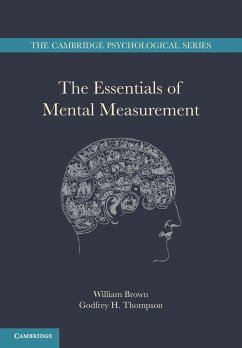
Essentials of Understanding Psychology with Psychinteractive CD-ROM V 2.0 and Powerweb
Versandkostenfrei!
Versandfertig in über 4 Wochen
93,99 €
inkl. MwSt.

PAYBACK Punkte
47 °P sammeln!
More popular than ever in colleges and universities worldwide, todays "Essentials of Understanding Psychology" has been completely redesigned and revised to provide excellent support and solutions for instructors teaching the introductory course. This major revision integrates a variety of media elements that not only foster student understanding of psychology and of how psychology impacts on students everyday lives, but also allow students and instructors to assess students mastery of psychologys key principles and concepts. "Essentials of Understanding Psychology" includes 12 fewer modules t...
More popular than ever in colleges and universities worldwide, todays "Essentials of Understanding Psychology" has been completely redesigned and revised to provide excellent support and solutions for instructors teaching the introductory course. This major revision integrates a variety of media elements that not only foster student understanding of psychology and of how psychology impacts on students everyday lives, but also allow students and instructors to assess students mastery of psychologys key principles and concepts. "Essentials of Understanding Psychology" includes 12 fewer modules than "Understanding Psychology" does, combined and rewritten to produce a seamless brief version of the big book. .












